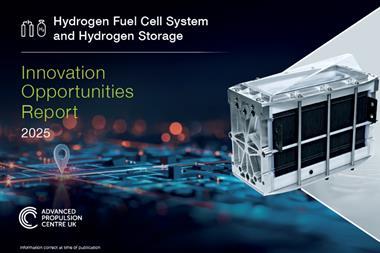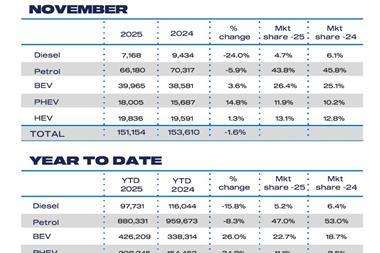A ground breaking project to ensure the UK is well-positioned for the commercial roll-out of hydrogen fuel cell electric vehicles has been launched, business minister Mark Prisk announced today.
The new programme – UKH2Mobility – will evaluate the potential for hydrogen as a fuel for ultra low carbon vehicles in the UK before developing an action plan for an anticipated roll-out to consumers in 2014/15.
The programme aims to:
· Analyse in detail the specific UK case for the introduction of hydrogen fuel cell electric vehicles as one of a number of solutions to decarbonise road transport and quantify the potential emissions benefits;
· Review the investments required to commercialise the technology, including refuelling infrastructure; and
· Identify what is required to make the UK a leading global player in hydrogen fuel cell electric vehicle manufacturing thereby paving the way for economic opportunities to the UK, through the creation of new jobs and boosting of local economies.
The group brings together the Government and industrial participants from the utility, gas, infrastructure and global car manufacturing sectors.
All of the participants have signed a Memorandum of Understanding to agree to share their knowledge and expertise.
Speaking at the launch of UKH2Mobility Mark Prisk said: “The UK is proving itself to be a key early market for ultra-low emission vehicles with growing numbers of electric and plug-in hybrids appearing on our roads. The Government is supporting this market by investing £400million to support the development, demonstration and deployment of these vehicles.
“Hydrogen fuel cell electric vehicles are increasingly being recognised as one of the viable options as we move to a lower carbon motoring future. They are highly efficient, can be fuelled in minutes, travel an equivalent range to a conventional combustion engine, and have zero tail-pipe emissions.
“This country has a number of world-class companies that are developing exciting technologies in both the hydrogen energy and automotive value chains and it is vitally important that we identify what is required to make these cars a realistic proposition for UK consumers.
“UKH2Mobility will bring together industry expertise to establish the UK as a serious global player in the manufacture and use of hydrogen fuel cell electric vehicles and the supporting infrastructure.”
Jerry Hardcastle, vice-president for Vehicle Design and Development at Nissan said:
“This is an important step for the automotive sector towards the development of clean vehicle technologies and zero emission mobility. It will lay many of the foundations for the commercial deployment of hydrogen-powered fuel cell electric vehicles which could represent a large segment of the UK market in the coming years. With this comprehensive list of partners we can be assured to have all the knowledge necessary to make UKH2 Mobility an exhaustive and credible study.”
Kevin Michaelis, regional vice president, Liquid Bulk/Generated Gases–Europe, Air Products, said:
“This project brings together the leading hydrogen infrastructure providers, at the forefront of deployment worldwide, with the common goal of supporting the rollout of hydrogen transport across the United Kingdom.
“The hydrogen infrastructure sector has been working over a number of years to develop hydrogen transport in the UK. We are very pleased that the progress made is being recognised by the Government in this ground breaking initiative that will shift the focus from R&D to deployment of hydrogen infrastructure.
“Working together with Government and leading car manufacturers we can support the creation of a hydrogen transport infrastructure that will dramatically cut harmful vehicle emissions and move the UK towards a zero carbon transport system.”
Dr Henri Winand, chief executive of Intelligent Energy, said:
“The UK H2Mobility is a ground breaking industry led task force. Its job is to roll its sleeves up and ensure that the UK is well positioned for the commercial roll-out of hydrogen fuel cell vehicles from 2014/15 as part of a balanced portfolio of drivetrains. Fuel cell vehicles, storage and refuelling technology are here today, they work! We now need to look at how we can make these elements, together with the hydrogen refuelling infrastructure, work most effectively to enable the UK to take full advantage of hydrogen as a transport fuel; stimulating inward investment, GDP growth and securing and creating new jobs.”
UKH2Mobility will deliver its evaluation of the potential of hydrogen as a transport fuel by the end of 2012. If the results are positive, an action plan will be developed to work through the steps needed to get the UK ready to be one of the first markets for the global commercial roll out of hydrogen fuel cell electric vehicles.

































No comments yet